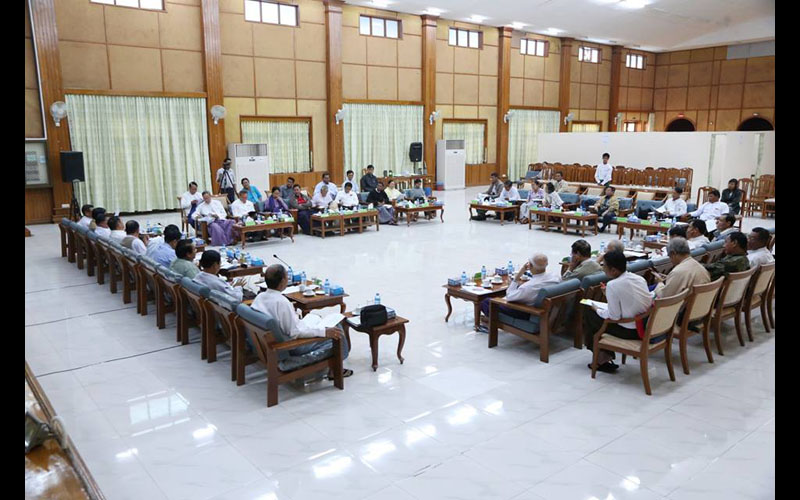Twenty-four political parties have released a statement opposing the recent appointment of five foreign nationals to a 10-member “advisory team” tasked with monitoring implementation of recommendations laid out in August by the Advisory Commission on Rakhine State.
“Our political parties have announced our objection because it appears that the so-called advisers have been allowed to interfere either directly or indirectly in our country’s sovereign affairs,” reads the joint statement, released on Wednesday following a meeting of the signatories at the Yangon office of the Union Solidarity and Development Party (USDP).
In signing the statement, the USDP was joined by the National Unity Party, the National Democratic Force, the Democratic Party (Myanmar), and 20 other political parties.
The signatories’ stated concern about interference from actors outside Burma’s borders is by now a familiar refrain: As noted in Wednesday’s joint statement, several of the political parties also previously raised a similar objection in September 2016, at that time complaining of the inclusion of three foreigners on the nine-member Advisory Commission on Rakhine State. Among the non-Burmese nationals was former UN Secretary-General Kofi Annan, who chaired the commission.
Following the release of that commission’s report, the government established the Committee for Implementation of Recommendations on Rakhine State, a body jointly headed by the Union Minister for Social Welfare, Relief and Resettlement Win Myat Aye and Rakhine State government Chief Minister Nyi Pu.
Formation of the “advisory team” was announced earlier this month, with its mandate ill-defined. “The advisory team will provide advice and assume charge of stipulated duties,” read a notice published in state media on 9 December; Order No. 98/2017 and dated the day prior.
The 24 political parties’ xenophobic fervour — their statement said Burma was being subjected to “mounting international interference” — tracks with broader trends as various elements within the country have turned away from the international community. On Wednesday, the UN special rapporteur on human rights in Burma said she had been informed that the government was ending its cooperation with her.
Earlier this month, the UN Human Rights Council voted overwhelmingly in favour of a resolution condemning Burma’s human rights record, particularly regarding the treatment of Rohingya Muslims in Rakhine State.
[related]
The tension — both multilateral and bilateral, and centred on the deteriorating situation in Rakhine State — has been stoked on both sides.
In June, Burma said it would not allow members of a UN fact-finding mission tasked with probing alleged human rights abuses to enter the country. By September, Britain had announced that it was cutting off its engagement with the Burmese military, and last month US Secretary of State Rex Tillerson labelled security operations in Rakhine State “ethnic cleansing.” Arguably one of the most striking illustrations of the growing divide between Burma and the international community in recent months involved an unexpected culprit of contention: biscuits.
Wednesday’s statement sought to rally public sentiment against outside influence over Burma’s affairs, saying the undersigned political parties “urge citizens to join with us in objecting to any actions of foreign countries and organisations that interfere with national sovereignty, security and interests.”



